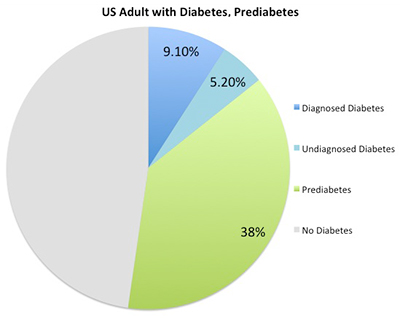Diabetes and arthritis are two chronic conditions that afflict a significant portion of the population. Recent findings have spotlighted a striking correlation: approximately 50 percent of individuals living with diabetes also contend with arthritis. This duality foreshadows a profound shift in how we understand the complexities of these interrelated health issues.
Diabetes, a metabolic disorder characterized by elevated blood sugar levels, primarily results from either insufficient insulin production or the body’s inability to effectively utilize insulin. On the other hand, arthritis encompasses a broad range of inflammatory joint diseases that can significantly impair mobility and quality of life. The intersection of these two conditions reveals a multifaceted relationship, one that unravels the intricate web of systemic inflammation and joint deterioration.
The prevalence of arthritis among diabetics is not merely coincidental. Studies suggest that the inflammation associated with diabetes can exacerbate joint problems, leading to a greater likelihood of developing rheumatoid arthritis or osteoarthritis. These conditions create a cycle of discomfort and mobility restrictions, further complicating diabetes management. While diabetes itself may not directly cause arthritis, the systemic effects and chronic inflammation that accompany it create an environment ripe for joint issues.
For many, this revelation may prompt a reconsideration of how diabetes is managed on a day-to-day basis. Effective diabetes management requires more than merely regulating blood sugar levels. It demands a holistic approach that encompasses dietary considerations, physical activity, and, crucially, the management of joint health. Incorporating anti-inflammatory foods into one’s diet, engaging in low-impact exercises, and seeking appropriate rheumatological care become paramount when navigating the challenges posed by both conditions.
Moreover, addressing the psychological ramifications of dual diagnoses is equally critical. Living with diabetes or arthritis can often lead to feelings of isolation, anxiety, and depression. Encouraging support systems, whether through community resources or familial networks, can foster resilience and improve overall well-being for individuals facing these health challenges.
The significant overlap between diabetes and arthritis urges healthcare professionals to broaden their evaluative frameworks. This paradigm shift emphasizes the interconnectedness of bodily systems. Physicians must take a comprehensive view during assessments and treatment plans, considering the potential for concurrent diagnoses. By doing so, they can facilitate better coordinated care to enhance the quality of life for the patients they serve.
As awareness of this correlation grows, it is paramount to foster a dialogue that explores prevention strategies, management techniques, and the importance of understanding the dynamic interplay between diabetes and arthritis. This exploration not only serves to illuminate the challenges for those affected but also aims to empower them with knowledge and resources to effectively navigate their health journeys.
